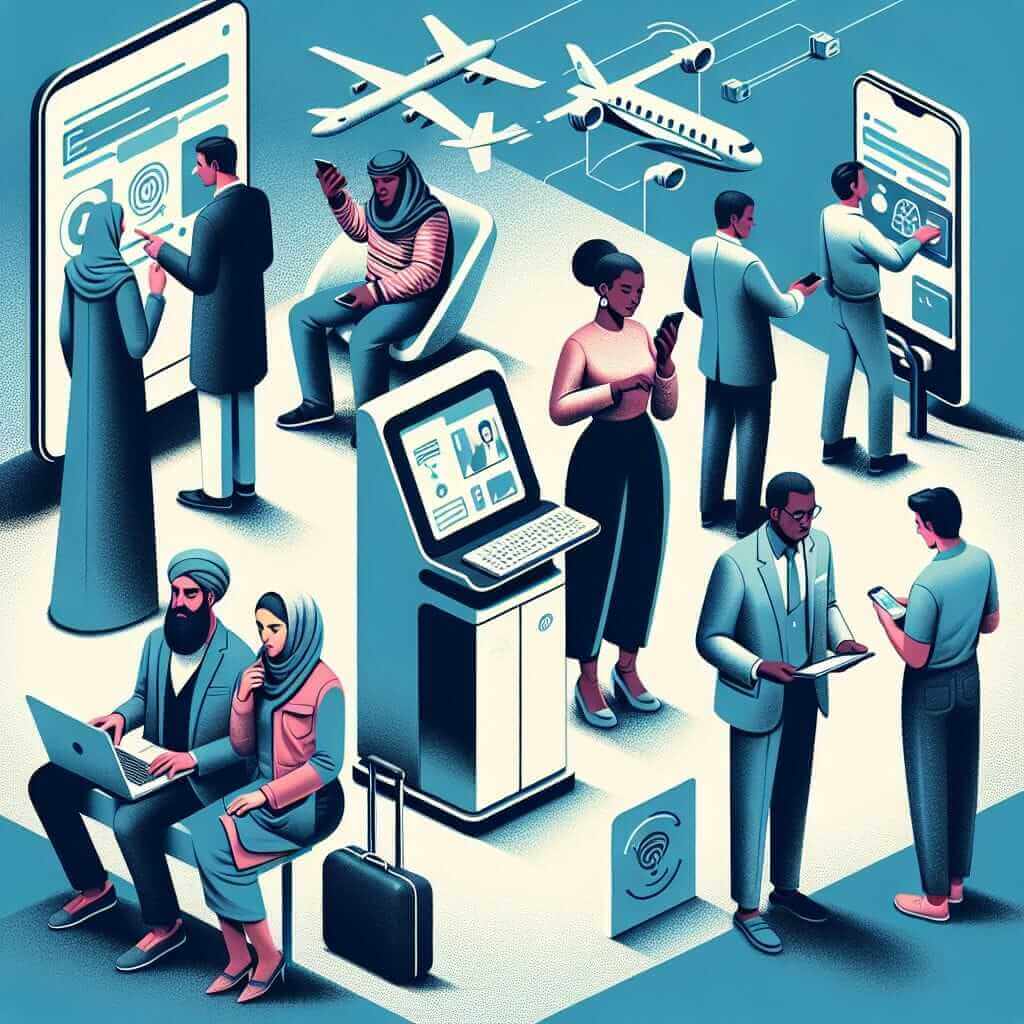The integration of digital technology into public services is revolutionizing how governments operate and interact with citizens. This topic frequently appears in IELTS Writing Task 2, often focusing on the advantages, disadvantages, and overall impact of these innovations.
Here are some potential IELTS Writing Task 2 questions related to this theme:
- To what extent do you agree that digital innovation has brought more benefits than drawbacks to public services?
- Discuss the main challenges governments face in implementing digital innovation in public services. Suggest some solutions to these challenges.
- Some people argue that digital innovation in public services could widen the gap between different socioeconomic groups. To what extent do you agree or disagree?
IELTS Writing Task 2 Sample Answer and Analysis
Chosen Essay Topic:
To what extent do you agree that digital innovation has brought more benefits than drawbacks to public services?
Essay Analysis:
This essay question requires you to present a balanced argument, acknowledging both the positive and negative aspects of digital innovation in public services. You need to clearly state your opinion and support it with relevant examples and logical reasoning.
Sample Essay:
Digital innovation is dramatically transforming the landscape of public services worldwide. From online portals for tax filing to telehealth consultations, technology is reshaping citizen-government interactions. While some argue that these innovations create new challenges, I firmly believe the benefits of digital innovation in public services far outweigh the drawbacks.
On the one hand, digitalization brings unparalleled convenience and efficiency to public service delivery. Online platforms allow citizens to access information, complete transactions, and receive services remotely, eliminating geographical barriers and reducing waiting times. For instance, the introduction of online passport applications has streamlined the process, saving citizens countless hours previously spent queuing at government offices. Moreover, digital tools facilitate data-driven decision-making, enabling governments to optimize resource allocation and tailor services to citizens’ needs more effectively.
However, concerns arise regarding the potential for digital exclusion. Not everyone possesses the skills or access to technology required to navigate the digital sphere. This digital divide could marginalize vulnerable groups, including the elderly and low-income communities, who may lack the resources or digital literacy to fully participate in the digital society. Additionally, cybersecurity threats and data privacy concerns are legitimate issues that need to be addressed.
Despite these challenges, governments can mitigate the risks and ensure equitable access to digital public services. Implementing digital literacy programs and expanding internet connectivity in underserved areas are crucial steps. Moreover, robust cybersecurity measures and transparent data governance frameworks can address privacy concerns and build public trust.
In conclusion, while challenges exist, the benefits of digital innovation in public services are undeniable. By embracing a citizen-centric approach, fostering digital inclusion, and prioritizing data security, governments can harness the transformative power of technology to create more efficient, accessible, and responsive public services for all.
(Word count: 295 words)

IELTS Writing Tips:
- Vocabulary: Use a wide range of vocabulary related to technology, government, and public services. Avoid repetition by using synonyms and paraphrasing.
- Grammar: Pay close attention to grammar accuracy, particularly in terms of verb tenses, subject-verb agreement, and article usage. Use complex sentence structures to demonstrate grammatical range and control.
- Structure: Follow a clear essay structure with an introduction, body paragraphs, and a conclusion. Use topic sentences to introduce the main idea of each paragraph and provide supporting evidence.
- Coherence and Cohesion: Ensure your essay flows smoothly by using linking words and phrases to connect ideas within and between paragraphs.
Essential Vocabulary:
- Digital Innovation (noun): New technological advancements in the digital realm.
- Public Services (noun): Services provided by the government to its citizens.
- Digitalization (noun): The process of converting information into a digital format.
- Accessibility (noun): The ease with which something can be reached or used.
- Digital Divide (noun): The gap between those who have access to technology and those who do not.
- Cybersecurity (noun): Measures taken to protect computer systems and data from unauthorized access.
- Data Privacy (noun): The protection of personal information from unauthorized use or disclosure.
- Digital Literacy (noun): The ability to use digital technology effectively and responsibly.
- Governance (noun): The process of governing or making decisions.
- Citizen-centric (adjective): Designed to put the needs of citizens first.
Conclusion:
The role of digital innovation in public services is a multifaceted topic with significant implications for governments and citizens alike. By understanding the key arguments and mastering the relevant vocabulary, you can confidently approach IELTS Writing Task 2 questions on this theme. Remember to practice writing essays and seek feedback to continuously improve your writing skills. For further exploration on how technology is influencing various sectors, you can read about the impact of technological innovation on healthcare access.